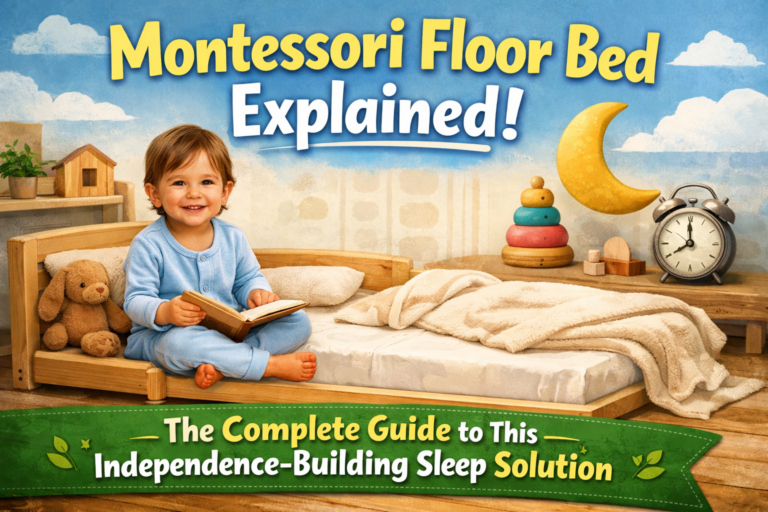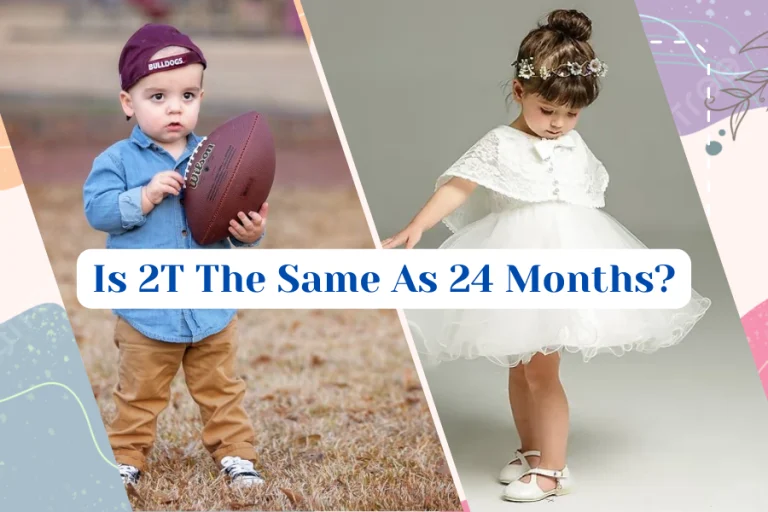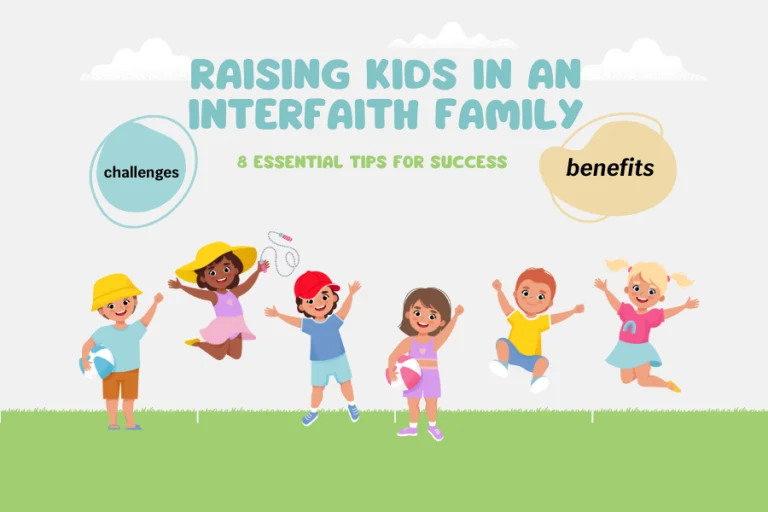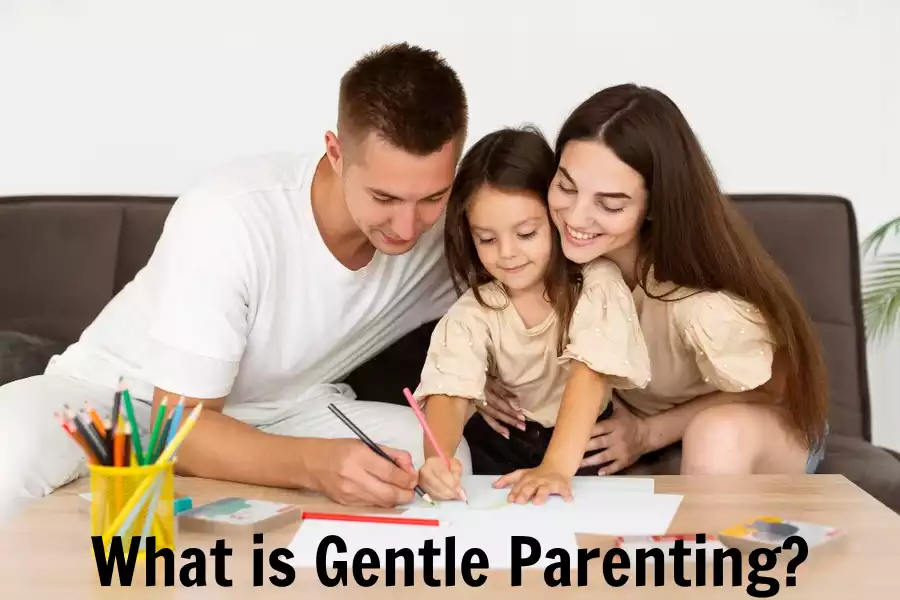
Many parents often ask: “How do I raise my children well? ” They often turn to such approaches that are advised by the people nearby or search the Internet and scientific websites to find proper solutions. Gentle parenting is one of the most effective methods that parents can think of adopting.
Gentle parenting is empathetic, respectful, and understanding. Mrs Sarah Ockwell-Smith wrote: “Imagine raising children where connection and empathy are the cornerstones. That’s the essence of gentle parenting. It’s about nurturing a bond with your child, understanding their emotions, and working together to find solutions. It’s not about being perfect, but about creating a loving and supportive environment where your child can thrive.“
Well, so how to raise children gently? In this article, we help you better understand what is gentle parenting? methods for upbringing, pros and cons along with how to apply them in daily life
1. What is gentle parenting?
Gentle parenting is one of the philosophies of raising children. In this case, parents avoid punishment techniques like time-outs and removing privileges. They focus on an outline of positive behaviors to encourage good behavior. The American Academy of Pediatrics (AAP) suggests this to pediatricians, they say that discipline is teaching, not punishment. It makes children more independent, creative, and able to express themselves most confidently.
The main principle of this method was identified and introduced by child psychologist Dr. Alfred Adler in the 1920s. This is the core of gentle parenting. Children should be treated in ways that help their mental health.
2. What is gentle parenting? Specific aspects of parenting
Gentle parenting includes understanding, cooperation, trust, and respect, boundaries. These are also the core principles of this method:
Empathy
Empathy in gentle parenting encourages feelings of safety, compassion, and psychological well-being.
According to experts, parents often neglect their children. They don’t listen or understand them. This neglect leads to a high risk of depression in children. Therefore, with this method, the parents are prompted to listen, comprehend, and empathize with the children more

Respect
In Gentle Parenting, children and their caregivers must both show respect. One clear way to show respect in the parent-child relationship is to let the child talk. They should do so without interruption, and you should ask questions before answering. It would be absurd to teach a child to grow up to be an adult who respects others if respect is not taught from a young age. When a parent or any adult in a child’s life shows respect to them, it tells the child that respect grows over time and by example. In our daily interactions, that means not yelling at children but using phrases like ‘Please, can you…?’ when you want your child to do something instead of saying ‘I warned you!’
Understanding
Understanding is the initial approach to gentle parenting. In the words of specialists, a child’s emotions and experiences are denied, diminished, or completely overlooked. Try telling a child, ‘It is nothing’ when you know that your child is hurt or sad. This can make them feel neglected and unappreciated like their opinions and feelings do not matter at all. In gentle parenting, we consider children’s emotions when explaining their behaviors. The response should consider how the child feels.

Boundaries
Gentle parenting is a type of discipline. It describes a method of management. The method aims to promote good behavior by establishing limits. It also involves adjusting student’s behavior. However, permissive parenting does not prescribe any kind of rules. The approach is tender in a way that it requests caregivers to agree to establish boundaries and rules for the correct upbringing of the child. Specific laws may be very different in the two families. But, they can address shared concerns by discussing what is said and done, and how.
3. What is gentle parenting? Its pros and cons
The age is 7 – 13. The National Scientific Council on the Developing Child1 found it to be a very sensitive age for receiving positive or negative impacts.
Strengths (Pros) of gentle parenting
Stronger parent-child bond: Gentle parenting that focuses on empathy leads to better interactions. Research shows that children with a secure attachment to their parents explore, and act on their own. They have also grown to be more independent, strong, and confident.2
Emotional intelligence: Gentle parenting may help develop children’s emotional intelligence. It does this by acknowledging and guiding them through their feelings.
Reduced anxiety: Hypotheses advise that gentle parenting might make children feel more secure in social situations and not as stressed as their highly aggressive peers.
Positive behavior: Trying not to upset the kids and teaching them good manners is one way of ensuring they have good behavior without using the rod.
Gentle parenting helps improve social skills. This is because it teaches empathy and emotion regulation. These core parts of the process are essential and cannot be removed.
Better academic performance: Studies show that they’ve improved children’s academic performance.
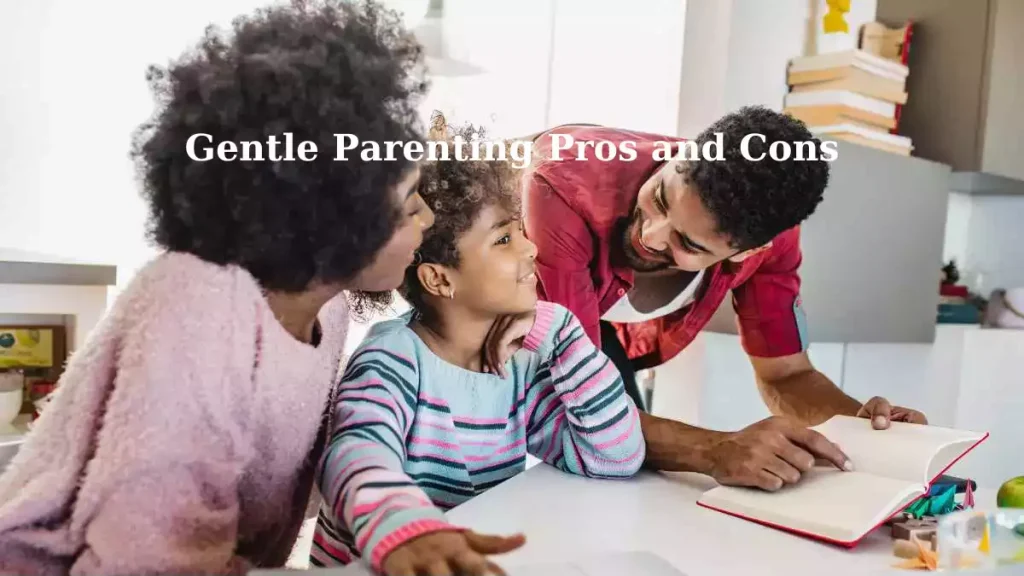
Weaknesses (Cons) of gentle parenting
- Gentle parenting takes time, it also requires patience, self-control, and emotional sophistication. It can easily cause tension. This happens in dangerous situations.
- Children ignore their words and actions. This leads to doing many wrong things without any deterrent.
- Difficulty with boundaries when children see their parents as more of a friend than someone they have to listen to
- Gentle parenting is only sometimes effective. This is mostly the case in accidents. It’s also true any other time that there is limited time to complete the task.
4. How does one incorporate gentle parenting into day-to-day?
Focus on empathy and validation: Try to be patient, and to understand what your child is trying to say to you and how they feel. We can ask them after a day of school activities. For example, ‘How was your day today?’ Recognize children’s moods and emotions. Care for them, encourage them, and help them feel comfortable.
Set clear and consistent boundaries: Make rules for each child. If they do wrong, explain why and what will happen next so they do not go wrong again. Instead of shouting “Don’t do that, it’s wrong”, say: ‘’If you do that what will be the repercussions and how will you endure it?”
Allows selection: Don’t force your child to take things they don’t like. Respect those preferences to promote autonomy and independence.

Model positive behavior: Children enjoy learning when examples are models they can identify easily. This means one should manage their emotions. They should also manage how they show them. This is because children are likely to copy whatever the parent does.
For instance, while walking on the road, you find a brick blocking traffic. Instead of folding your arms and looking away, you take the brick and put it elsewhere. You did that right and have made an example for your child, and he has become a different person.
Focus on solutions: Parents should help their children solve problems, they shouldn’t let the child self-destruct or do things for them. That will mend the relationship more closely
5. Consultation
Parents should know that gentle parenting is a long way. This will help them arrange for their children to find happiness and success. This is true if they love and value them. We hope this article will empower parents. It will show them how to bond closer to their children. This will help us have happy families.
Sources
- Larzelere R, Lindner Gunnoe M, Roberts M, et al. Children and Parents Deserve Better Parental Discipline Research: Critiquing the Evidence for Exclusively “Positive” Parenting. Marriage and Family Review. 2017;53:1,24-35. ↩︎
- Dallaire DH, Pineda AQ, Cole DA, et al. Relation of Positive and Negative Parenting to Children’s Depressive Symptoms. J Clin Child Adolesc Psychol. 2006;35(2):313-322. ↩︎

